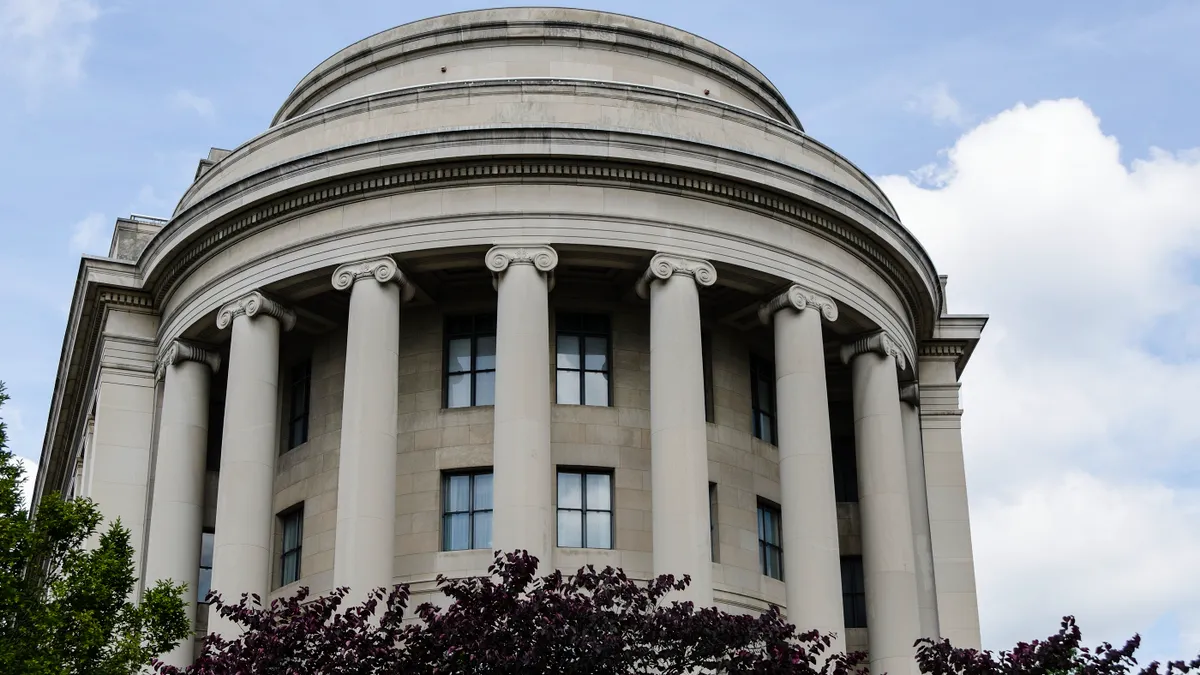K. Bryance Metheny is a partner at Burr & Forman in the Birmingham, Ala., office. He is chair of the firm’s Labor and Employment practice group and may be contacted at [email protected]. Gabriell M. Jeffreys is an attorney at Burr & Forman in Birmingham, Ala., where she practices in the firm’s Labor and Employment practice group. She may be contacted at [email protected]. Views are the authors’ own.
On Jan. 5, the Federal Trade Commission released a Notice of Proposed Rulemaking to address noncompete agreements. With the rule’s comment period closed as of April 19, employers are now on standby for the final rule and should know five things about the rule and its potential impact on their businesses.
1. The proposed rule contains a blanket ban on all noncompetes.
The FTC’s proposed rule proposes to declare all noncompete clauses unfair competition and prohibit employers from entering or attempting to enter into noncompetes with all workers. The ban would also require employers to rescind existing noncompete clauses with workers and even provide notice to the workers that the noncompete clause is no longer valid and may not be enforced. In fact, the proposed ban is so broad it would also ban other contractual terms it deems de facto noncompete clauses. For example, it would ban a nondisclosure agreement written to effectively prevent the worker from employment in the same field or a training repayment agreement that requires the worker to repay training costs if the worker’s employment terminates within a specified period of time.
At present, the only exception to the proposed blanket ban is a limited exclusion for noncompete clauses entered into when a business is sold.
2. The proposed rule is the latest in a recent trend to promote competition and limit enforceability of noncompetes.
The proposed rule tracks a recent trend to promote economic mobility and increase enforcement to restrict methods the administration believes stifle competition. In July 2021, President Biden issued an executive order titled “Promoting Competition in the American Economy.” The executive order established a “whole-of-government effort to promote competition in the American economy” and called on multiple government agencies to “reduce the trend of corporate consolidation, increase competition, and deliver concrete benefits to America’s consumers, workers, farmers and small businesses.” The executive order specifically encouraged the FTC to exercise its “statutory rulemaking authority under the Federal Trade Commission Act to curtail the unfair use of noncompete clauses and other clauses or agreements that may unfairly limit worker mobility.” The FTC’s proposed rule resulted from the president’s encouragement.
3. This increased federal government effort to curtail noncompetes also comes after many states banned noncompetes or limited their enforceability.
A few states, such as California, North Dakota, and Oklahoma — as well as the District of Columbia — have outright banned noncompetes with very limited exceptions, while other states, such as Colorado, Illinois, Maine, Maryland, New Hampshire, Oregon, Rhode Island, Virginia and Washington banned noncompetes for workers below a certain wage threshold.
In addition to state law limitations, courts have also traditionally disfavored noncompetes and have limited enforceability generally to agreements in which the employer has a legitimate protectable interest and the noncompete’s geographic and temporal restrictions are reasonable. The FTC’s proposed rule is just the most recent act in a growing trend to restrict noncompetes.
4. The proposed rule will likely face legal challenges.
Litigation over the proposed rule is inevitable. FTC Commissioner Christine Wilson predicted legal challenges in her dissent to the proposed rule, which described it as “a radical departure from hundreds of years of legal precedent.” The commissioner posited three “meritorious challenges” the rule is vulnerable to:
- The commission lacks authority to engage in the rulemaking;
- The “major questions doctrine” applies, which requires agencies like the FTC to have clear congressional authorization to address “an issue of major national significance” so the commission lacks clear Congressional authorization to undertake this initiative; and
- Even if the FTC does possess the authority to engage in the rulemaking, it impermissibly delegates legislative authority under the “nondelegation doctrine,” which aims to distinguish between necessary delegation of power to other branches of government from unconstitutional grants of legislative power.
The commissioner reiterated her concerns about the proposed rule when she announced her resignation on Feb. 14, stating, “This proposed rule defies the Supreme Court’s decision in West Virginia v. EPA (2022), which held that an agency can’t claim to ‘discover in a long-extant statute an unheralded power representing a transformative expansion in its regulatory authority.’” In other words, these statements demonstrate a final rule on noncompetes is unlikely to go into effect without numerous legal challenges.
5. The proposed rule is not in effect.
The proposed rule is nothing more than a proposal at the moment. It is not in effect, so employers face no imperative to overhaul current business practices.
Even with the comment period closed, the final rule remains unlikely to go into effect for several months and is then likely to face legal challenges. These hurdles eliminate the immediate urgency, but employers who use noncompetes should examine current agreements and evaluate available alternatives to protect confidential information, customer lists and contacts, and business trade secrets. Of course, careful attention to the FTC’s progress on the proposed rule is imperative.











